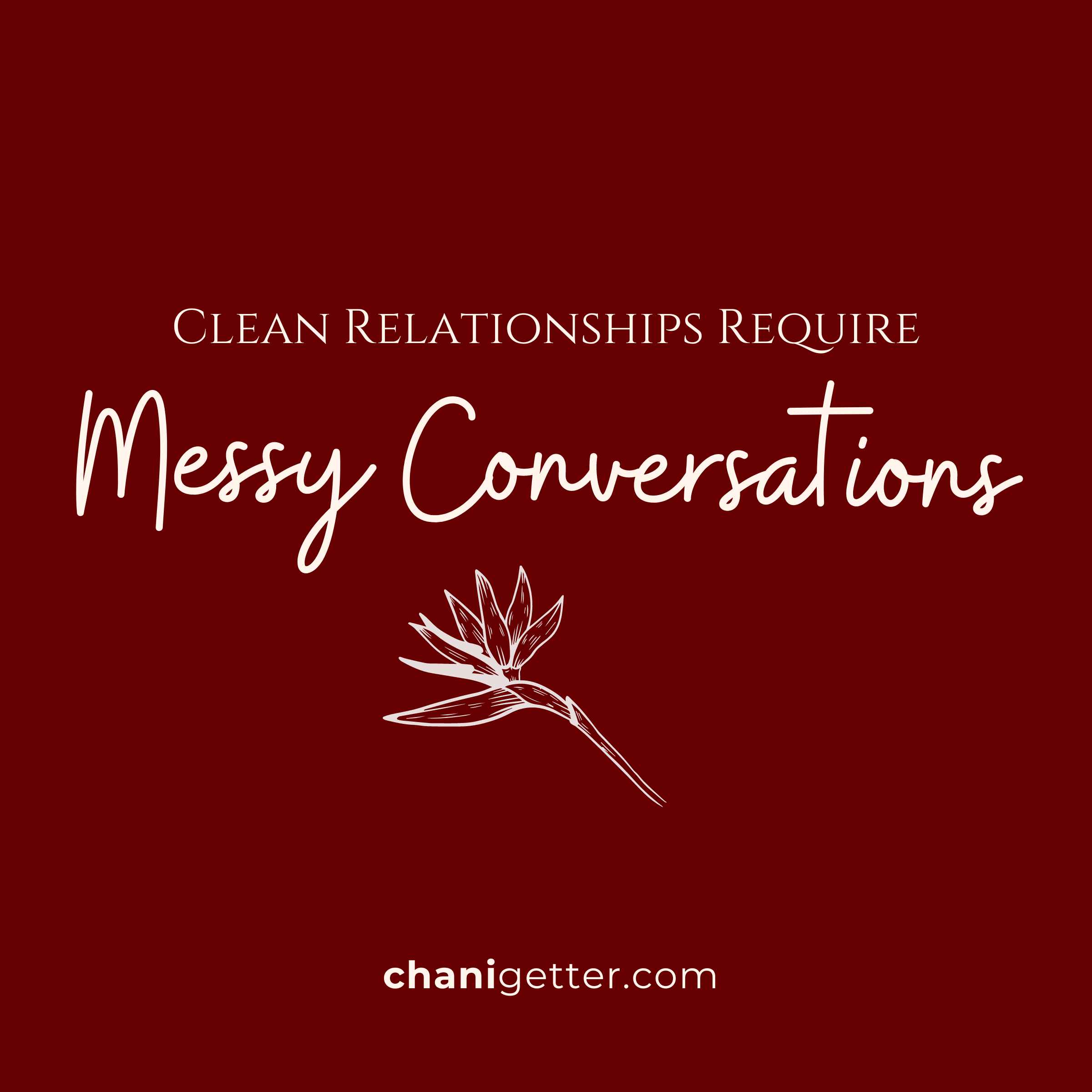Messy Conversations – A Reflection on Impact
Rev. Chani Getter
July 28, 2024
A few weeks ago, I wrote a reflection about intent vs impact. In that post, I shared a story about speaking at a synagogue and responding to a question about pronouns (you can read it here).
A few days after I shared it, I received an email from the rabbi of the congregation where I spoke, titled “in the spirit of honest dialogue,” letting me know how my post (and related video) had impacted him. He was hurt. He shared honestly, respectfully, and vulnerably.
Because he reached out, I realized that I had neglected to share the spirit of how the question was asked, and didn’t explain clearly that I welcomed the question in that setting. I learned a lot about intent vs impact in that exchange, my impact had hurt him. And perhaps people in the congregation, even though that was not my intent.
His willingness to email me and have a messy conversation allowed us to repair. His trust and honest dialogue enabled us to strengthen our relationship and our understanding of one another and ourselves. I never would have known that I had hurt him and would have continued on my merry way. It is in saying “ouch, that hurt” that we open a conversation that can lead to resolution and sometimes repair. It is often difficult to share with someone, and generally challenging to listen to. But ultimately repair and connection is something we all crave.
One of the highlights of my career is the opportunity to train, to teach, and to educate. I want to clarify that I love the exchanges I have in communities. I enjoy being asked hard questions. Being with a group of people who are looking to grow and understand more fully is deeply gratifying to me.
When the question, “why would we care about pronouns, why can’t we just assume?” was posed in that congregation, it was in the spirit of learning, in the desire to grow and understand one another better. There was no malice in the question, rather it came from curiosity.
I should have explained that in my post. As I wrote to the Rabbi:
“The question was asked respectfully and honestly and was a totally ok question to ask.
“What I was surprised by was how I answered it, how raw I was – and that was because I felt safe in that space. AND I realized that there was a teaching here, for people to understand what happens inside of me when I am misgendered. For people to realize how impact works even though this is never the intent of the person doing it.”
My intention was to write a post about impact vs intent for others, and I learned about my impact.
When I walk into public spaces to speak about religious trauma, LGBTQIA+ issues, grief, or leaving insular communities, I walk in as an educator. As I explained to a group of staff at Hunter Hillel where I led a training a few months back; “people get to ask us questions about our Jewish journey because we are professional Jews. But we do not get to ask others those same questions, because that is not what they have signed up to do.”
In my case, I am a professional gay activist, queer Jew, grief counselor, and religious trauma expert. People have permission to ask me hard questions about these issues. Education is critical, and professionals are important in this process.
That does not mean that it is okay to ask these same questions from people who are living their lives. If there isn’t an invitation, it’s not respectful to ask people why their pronouns matter, what made them leave their insular community, what their relationship with their family is, or about their trauma. Even if we are curious and want to know. It isn’t our place to do that.
That’s why events where people do get to ask hard questions are so important to me. It’s important we learn about our impact, in settings that are designed for it.
I want to publicly apologize to the rabbi and to the congregation for any hint of that question being posed in any other context than curiosity and learning. I was there to educate, it was my job to answer these hard questions, and I was honored to do so.
I especially want to thank that congregation for allowing me the gift of answering it honestly and taking in what I shared.
I often say, “clean relationships require messy conversations.” Because conscious relationships require us to be honest, to be vulnerable, to say when we are hurt. It is impossible to create “safe spaces” where everyone feels safe and secure. It is possible to create “conscious spaces” where the intention is to be in community and the purpose is to notice and honor one another. So that when we are hurt (because in life we will be), we get to say “ouch – that hurt.” And when we hurt someone (because inevitably as humans we will), we say “oops – I am sorry.” It is in doing this hard thing of communicating honestly that we get to the other side of it.
What messy conversation do you need to have?
May you have the courage to have it sooner rather than later.
Many blessings,
Chani
audio version - listen now

Be the first to comment